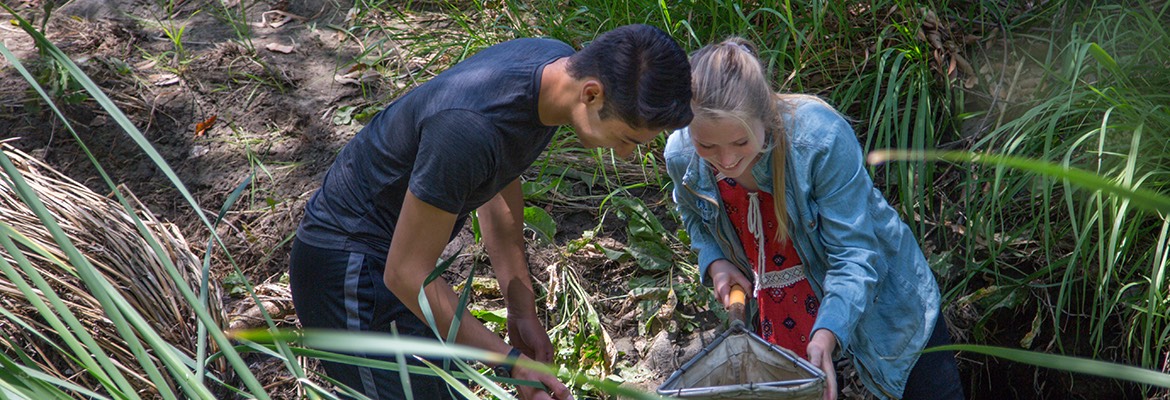Minor in Environmental Science

Overview
Biola’s environmental science minor program equips students from any major to impact the world for Christ by working to restore all aspects of God’s creation. The environmental science program provides a platform that combines scientific and theological knowledge with practical field, lab and teaching skills, and can be used by those passionate about creating just and sustainable solutions for environmental issues.
Courses
Below are the course requirements for this academic program. In addition to these program-specific requirements, all majors include Biola's traditional undergraduate core curriculum. For more program details, including a sample course sequence, visit Biola's academic catalog.
Mission
The mission of Biola’s Environmental Science minor is to allow students from all majors to be trained to impact the world for Christ, working to restore all aspects of God’s creation, by combining scientific and theological knowledge with practical field, lab, and teaching skills in order to create just and sustainable solutions for environmental issues.
Program Learning Outcomes
Upon completion of the Environmental Science Minor, students will be able to:
-
Integrate science and faith to evaluate major environmental issues and develop just and sustainable solutions. (ULO 1, 2).
-
Demonstrate field, lab, evaluation, and presentation skills needed to conduct environmental research. (ULO 1, 3).
-
Integrate science and faith with teaching skills to motivate people to care for people and the rest of God’s creation. (ULO 1, 3).
Each Program Learning Outcome (PLO) listed above references at least one of the University Learning Outcomes (ULO 1, 2, 3), which may be found in the General Information section of this catalog.
Curriculum Requirements
| Code | Title | Credits |
|---|---|---|
| Program Courses | ||
| BIOS 103 | Introduction to Environmental Science | 3 |
| BIOS 112 | Fundamentals of Organismal Biology | 3 |
| BIOS 114 | Fundamentals of Organismal Biology Laboratory | 1 |
| BIOS 353 | Environmental Ethics | 3-4 |
| or BIOS 354 | Bioethics | |
| BIOS 401 | General Ecology | 4 |
| Select two courses from the following: | 7-8 | |
| Botany | ||
| Vertebrate Biology | ||
| Ecological Agriculture | ||
| Global Development and Ecological Sustainability | ||
| Land Resources | ||
| Lake Ecology and Management | ||
| Field Biology | ||
| Marine Biology | ||
| Environmental Health: An Ecological Perspective | ||
| Principles of Geographic Information Systems | ||
| Conservation Biology | ||
| Restoration Ecology | ||
| Au Sable Institute of Environmental Studies | ||
| Total Credits | 21-23 | |